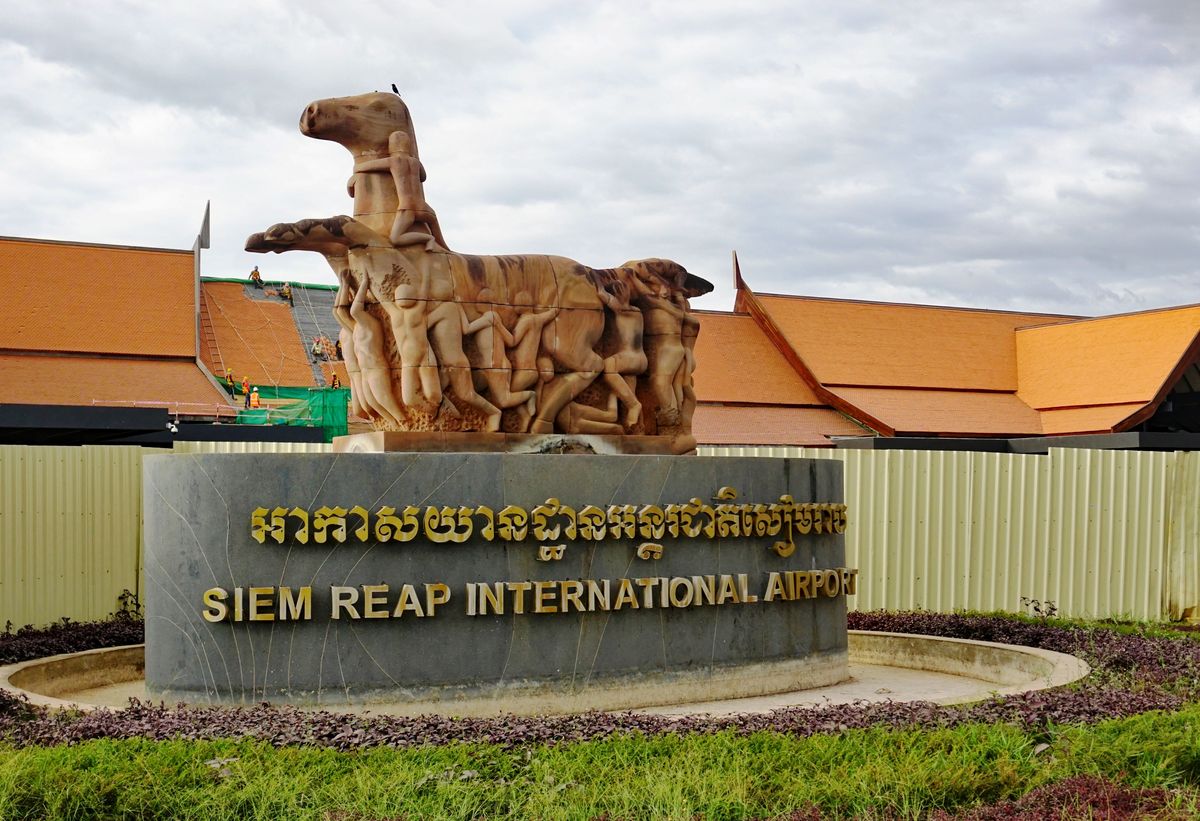Shifting Sentiments for China's Belt and Road Initiative in Southeast Asia

The Lede: Last month, as China celebrated the 10 year anniversary of President Xi Jinping’s Belt and Road Initiative (BRI), Cambodia inaugurated its new BRI-financed airport while the Philippines pulled out of BRI-funding for three major railway projects as countries demonstrate varying degrees of success and reassess their participation in Beijing’s global infrastructure strategy.
What We Know:
- In mid-October, the China-funded Siem Reap-Angkor International Airport opened to commercial flights. Now the newest and largest airport in Cambodia, it serves as the main gateway to the UNESCO-listed Angkor Archaeological Complex, one of the country’s most popular tourist sites. Under airport code SAI, it replaces Siem Reap International Airport (REP), which first opened in 1932 and is only a few kilometers away from the Angkor complex.
- The airport’s construction was funded by China as part of BRI and cost about $1.1 billion. SAI was designed to initially handle 7 million passengers a year and is operated and managed by the Yunnan Aviation Industry Investment Group.
- Speaking to a forum of German and Philippine businesspeople in Manila at the end of October, Philippine Transportation Secretary Jaime Bautista announced the full termination of a series of major railway infrastructure projects with China in favor of funding from Japan, South Korea, or India. The three railways include the Subic-Clark Railway Project, the Philippine National Railways South Long-Haul Project, and the Davao-Digos segment of the Mindanao Railway Project. They are collectively worth $4.95 billion.
The Background: At the latest BRI forum in China, Cambodian Prime Minister Hun Manet signed several memorandums of understanding about potential projects. For the Philippines, China pledged as much as $24 billion in infrastructure projects under former president Rodrigo Duterte. The three rail projects that the Philippines have withdrawn from have relied heavily on the anticipated BRI financial resources, but virtually none of those projects have been delivered.
Likely Outcomes:
- Much of variable enthusiasm in BRI among participant countries can be attributed to larger geopolitical considerations. Cambodia has been supportive of China in recent years, even with claims in the South China Sea, while China’s hands-off approach to working with undemocratic governments has formed a favorable basis for cooperation. That aspect of Chinese foreign policy had worked well for the Philippines under Duterte, but increasing maritime tensions between Beijing and Manila, and the latter’s increased military cooperation with the U.S. has put pressure on their relationship.
- Chinese cooperation with Cambodia will likely increase, while the Philippines likely will turn to the U.S. as its traditional partner. The trajectory of BRI cooperation may be an indicator for the drift among different countries toward either the U.S. or China in the global balance. The Philippines has gone a similar route to Italy, for example, as a country that had signed on to BRI, but has since decided against further participation as bilateral relations shifted. Cambodia may be going more in the direction of Pakistan in its enthusiasm to move forward with BRI projects and funding. While Beijing likely enjoys its cooperation with Phnom Penh, it will have to assess its BRI strategy in the country as their approach has shifted. Pakistan recently faced rejections from China for new BRI projects as this refocusing takes place.
Quotables:
“While appearing attractive, the loans are not exactly that benevolent as they come with hefty interest rates and other strings that could be detrimental to the country in the long term.” - Grace Poe, Senator of the Philippines
“The cost of repaying loans, maintenance and repair will fall on the Cambodian government. There is also the risk that Chinese companies may fail to deliver due to their own economic difficulties." - Carl Thayer, professor emeritus of politics at the University of New South Wales Canberra
Good Reads:
Cambodia’s newest and biggest airport opens in Siem Reap, the gateway to UNESCO-listed Angkor (CNN)
Billion-dollar airport whets Cambodia appetite for Chinese investment (Nikkei)
Billion-Dollar Airport Likely to Expand China’s Footprint in Cambodia (VOA)
Philippines Drops Chinese Funding For Three Railway Projects (The Diplomat)
Why the Philippines is exiting the Belt and Road (Asia Financial)
Philippines says Japan, S.Korea, India offer to fund railway projects (Reuters)
